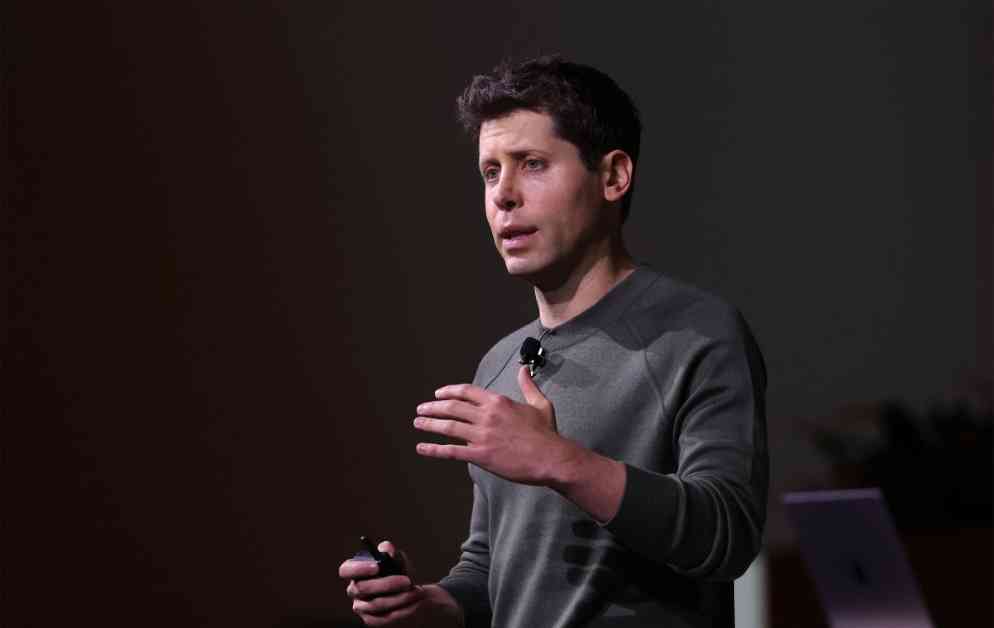Following the sudden departure of OpenAI’s Chief Technology Officer, Mira Murati, the company’s CEO Sam Altman is reportedly on the brink of receiving equity in the organization for the first time. This development comes as OpenAI shifts away from its long-standing nonprofit structure towards a new for-profit benefit corporation model.
According to Reuters, sources familiar with the matter have disclosed that OpenAI is planning to restructure itself into a for-profit entity similar to competitors such as Anthropic and Elon Musk’s xAI. The current nonprofit OpenAI board, which currently oversees the company’s for-profit activities, will be stepping back from control but will still hold a minority stake in the new for-profit iteration of OpenAI.
The purpose behind this transition is to make OpenAI more appealing to external investors who have expressed concerns about the company’s current limitations on returns. However, this move is likely to spark apprehension within the AI safety community regarding OpenAI’s ability to maintain accountability in its pursuit of superintelligent AI. While the restructuring plan is in progress, many of the specific details and the timeline for implementation are still being finalized.
Subheading: Implications of Sam Altman’s Equity Stake
Sam Altman, a prominent figure in the tech industry and a key player in the development of OpenAI, receiving equity stake in the company marks a significant shift in the organization’s structure. As Altman prepares to have a financial stake in OpenAI for the first time, this move could potentially impact the company’s direction and decision-making processes.
Altman’s increased involvement in the financial aspects of OpenAI could signal a new phase for the company, where strategic decisions are influenced by both profit motives and the pursuit of cutting-edge AI technologies. The transition to a for-profit model may also lead to changes in OpenAI’s priorities and objectives, as the organization adapts to a more commercially driven approach.
It will be interesting to see how Altman’s equity stake influences OpenAI’s operations and relationships with external partners, investors, and the broader AI community. As one of the driving forces behind the company’s growth and success, Altman’s newfound financial interest in OpenAI could shape the organization’s future trajectory and impact its standing in the competitive AI landscape.
Subheading: Challenges and Opportunities in OpenAI’s Restructuring
The decision to restructure OpenAI into a for-profit benefit corporation presents both challenges and opportunities for the organization. While this shift may attract new investors and provide financial incentives for growth, it also raises questions about OpenAI’s commitment to its original mission of ensuring the safe and ethical development of artificial intelligence.
One of the key challenges that OpenAI may face during its transition to a for-profit model is striking a balance between profitability and responsible AI research. As the company seeks to maximize returns for its stakeholders, it must also uphold its commitment to advancing AI technologies in a socially responsible manner. Balancing these competing priorities will require careful planning and oversight to ensure that OpenAI remains true to its core values and principles.
At the same time, the move towards a for-profit structure opens up new opportunities for OpenAI to expand its reach and impact in the AI industry. By attracting external investment and forging partnerships with commercial entities, the company can access resources and expertise that may accelerate its research and development efforts. This could position OpenAI as a key player in the competitive AI market, driving innovation and shaping the future of artificial intelligence.
Subheading: Addressing Concerns in the AI Safety Community
The transition of OpenAI to a for-profit benefit corporation has sparked concerns within the AI safety community about the organization’s ability to maintain transparency and accountability in its pursuit of superintelligent AI. As OpenAI shifts its focus towards profitability, there are fears that commercial interests may overshadow ethical considerations and lead to potential risks in AI development.
Key stakeholders in the AI safety community have emphasized the importance of upholding ethical standards and ensuring that AI technologies are developed responsibly. OpenAI’s commitment to AI safety and alignment with human values will be closely scrutinized as the organization navigates its transition to a for-profit model. It will be essential for OpenAI to engage with experts, researchers, and policymakers to address these concerns and demonstrate its dedication to ethical AI development.
In conclusion, the restructuring of OpenAI into a for-profit benefit corporation represents a significant turning point for the organization. As Sam Altman prepares to receive equity in the company for the first time, the dynamics of OpenAI’s operations and decision-making processes are poised to undergo a transformation. While the move towards a for-profit model presents challenges and opportunities, it is essential for OpenAI to navigate this transition thoughtfully and responsibly to uphold its mission of advancing AI technologies for the benefit of society.











